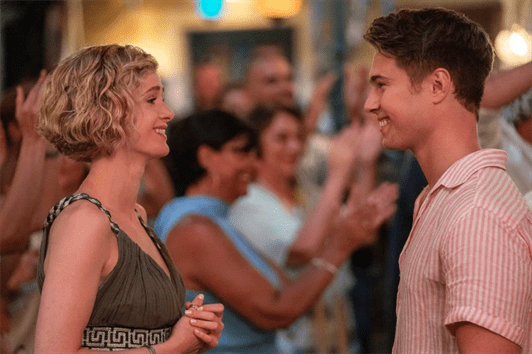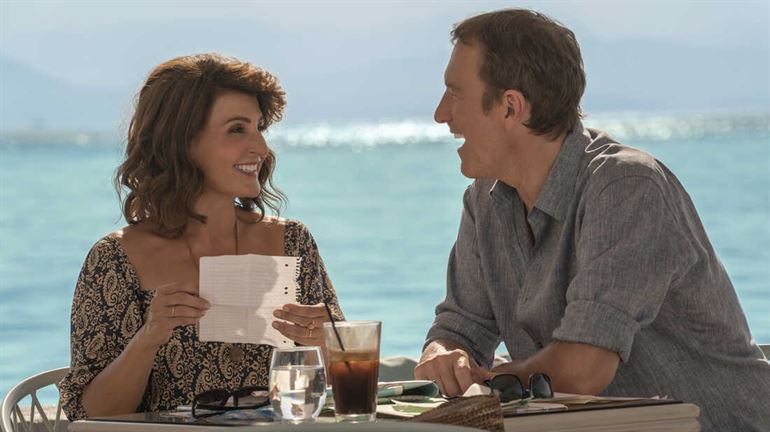“Aide gia!” means “hey, see you later!” in Greek. Whether you recognize it from my last name or simply made the assumption, I am Greek-American. This means I saw the other two movies, I can confirm that diners are primarily Greek-run, and I get to correct peoples’ pronunciation of “gyro.” I also get to say with certainty that gyros are better than shawarma. That is simply a fact.
The movie continues following Toula (Nia Vardalos), the first-generation daughter, as she tries to get the whole family back together in her father’s village after his passing. She sets out to give his journal to his three best friends, all of whom are scattered throughout Greece, with the help of a couple of relatives who still reside in the village.
The first movie appeals to anyone who is first generation- those born in the states but still living in the microcosm of their ethnicity. It portrays trying to learn the mannerisms and behaviors of “Americans” while trying to keep in line with the cultural norms of your household. Exploration of fashion, pop culture, language and of course, familial and romantic expectations. The truth is that the struggles of the first generation are significantly different from the second generation and so on. First-gen kids may try to “pull away” from their background in an attempt to assimilate and participate in American society. On the other hand, second and third try to “hold on” to their cultural background as they find themselves already equipped to operate in American culture.

Paris does not really evolve in her attitude towards being Greek. Photo courtesy of Focus Features
“My Big Fat Greek Wedding 3” attempts to convey that, but fails to do so as the second generation child, Paris (Elena Kampouris), does not really evolve in her attitude towards being Greek. Rather than embrace it or even try to learn more about it, she is passive about the whole experience, as she was in the second movie, too.
However, the one thing the movie really did get right is how emigrated families tend to slowly drift apart with each generation.

The point of the movie was to show how you can eventually bring people together once more. Photo courtesy of Focus Features
Since each new generation is better equipped to navigate through American life, they have more confidence and resources to mobilize themselves. There is also a change in mentality: with immigrant parents, there was a “herd mentality” where you had to stick with those you knew in order to survive. For the newer generations, there is no interdependency. If you speak English and attend school in some capacity, you can find your way. You are not foreign to the habits and opportunities available to you.
So, the gradual “falling out of contact” with friends or extended family is natural. It is something I can attest to as I watch cousins go off in different directions with their lives and (non-Greek) spouses. Yes, as with all ethnicities, marrying “someone like you” is less important to the new generation, as your attraction to someone supersedes the maintenance of culture.

The movie continues following Toula, the first-generation daughter, as she tries to get the whole family back together in her father’s village after his passing. Photo courtesy of Focus Features
The point of the movie was to show how you can eventually bring people together once more. The older generation reconnects with one other and the newer ones can familiarize themselves with their identity and extract from it. It is simply that we did not see that with Toula’s daughter, which is a shame because most second-generation children do care about their background, and make a conscious effort to keep it in their life. They don’t necessarily have to marry the same culture. But learning the language and family history are baseline things, in my opinion.
In summary, other than making it a tribute to Michael Constantine, the actor who played Toula’s father, it could have stopped at the second movie, as there wasn’t much more substantial material to explore.
And as a last-minute note, I would just like to say — contrary to what the movie showed, there are not evil eyes or the “mati” everywhere in “real” (not tourist-y) Greece. Well, some people might be obsessive about that. But if you really want protection, someone (such as your loving grandmother) will spit on you to ensure that. This is a custom (if you did not guess) that is almost like spitting away the devil. But please, ask your friends first before you just “ftou ftou” at them!



